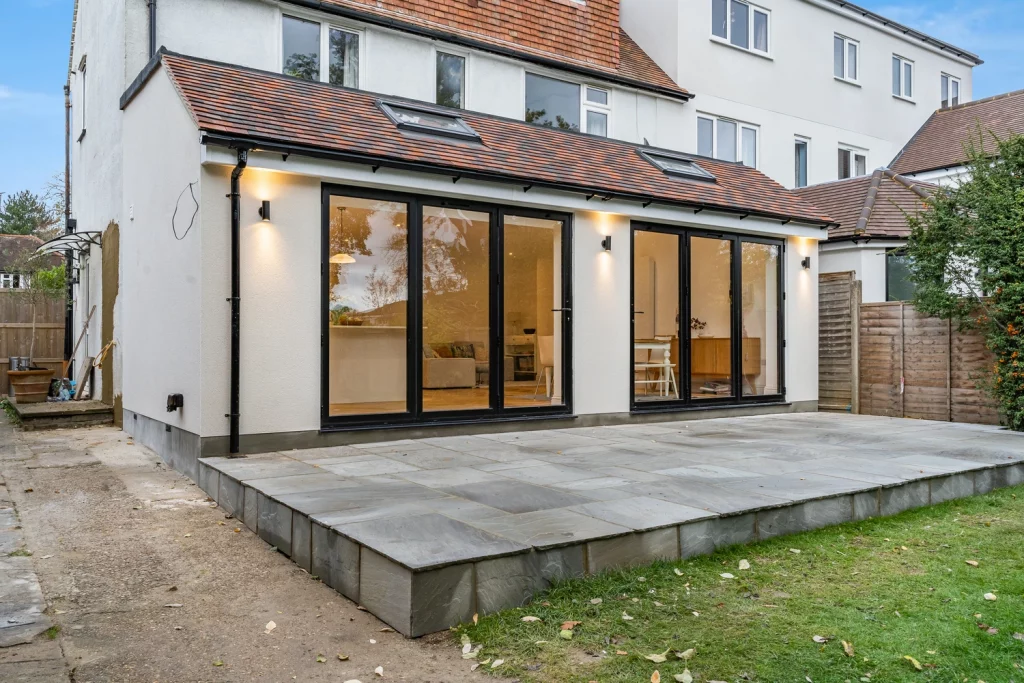Why are house extensions so expensive
Why You Will Pay More For Your
House Extension In 2024
Posted by Craig | Updated [current_date format=’F, Y’] | 8 Min Read Time
At a glance
- The reason you will pay more for a house extension in 2024 will be because of escalating materials costs and labour shortage
In this article, you’ll find the following:
- An explanation of the ever-growing “Green Trend” as it continues to grow in 2024
Hello, I’m Craig Smith, and as someone who’s been immersed in the building and construction world for many years, I’ve seen quite a few shifts and changes. 2023 brings with it new challenges for those considering a house extension in St Albans, and it’s vital to be aware and prepared.
The dreams of a spacious kitchen, a sun-drenched conservatory, or perhaps a dedicated home office have beckoned to many homeowners. Extending your home has always been a treasured British pastime, especially when moving becomes unfeasible or undesired. Taking house extension action now could be the key to realising these dreams, despite the budget adjustments that may be necessary this year.
However, this year, if you’re considering this venture, you’ll likely need to budget a bit more than you had anticipated.

The Reason You Will Pay More For A House Extension In 2024
Will Be Because Of Escalating Materials Costs And Labour Shortage
Have you been thinking about the cost of a house extension?
So, why exactly will your extension costs be higher in 2024?
1. The Escalating Costs of Building Materials
One of the most prominent factors behind the rise in extension costs this year is the significant hike in building material prices. As demand has surged globally due to the aftermath of the pandemic, coupled with the complexities of Brexit on supply chains, inflation has seen a sharp incline, making the costs of products soar.
For instance, glazing costs have witnessed a notable increase in the past year. Clayton Glass and other major suppliers are indicating that these materials, which are crucial for many modern extensions, come at a steeper price now. Similarly, brick prices are up by an astonishing 20%, as highlighted by Jewson. This rise is attributed not just to the increased costs of raw materials, but also to other factors like elevated transportation, fuel, and operational expenses.
However, there are strategies you can employ to help manage these rising costs. Tim Phillips, a seasoned quantity surveyor, suggests buying ahead, especially during promotional sales or bank holidays. Such preemptive actions can lock in prices for essentials like kitchens and bathrooms, giving you a bit of relief.
2. Skilled Labour Shortages Inflate Costs
There’s an adage that states, ‘A workman is only as good as his tools’. In 2023, it seems we might be amending it to ‘… if you can find one’. Recent statistics from the Office of National Statistics (ONS) are rather alarming. In 2022, it was reported that a quarter of construction businesses in the UK faced skilled labour shortages.
Builder Andy Stevens of Eclipse Property Solutions provides a bit more context to these figures. According to him, the construction industry hasn’t fully rebounded from the post-Brexit exodus of many EU workers. This has had a domino effect on availability, driving up the rates of those who are still in the UK and offering their expertise. In fact, the best in the trade are booked up till 2024.
To navigate this challenge, patience might be the best policy. It’s tempting to go with tradespeople who are readily available and perhaps cheaper, but as Stevens rightly points out, you might end up “paying twice” if the job is not done right the first time.

3. The Green Trend Comes At A Price
While the push towards more eco-friendly and sustainable homes is commendable and necessary, it comes with its own set of financial implications. The drive to make our homes more energy-efficient, especially in light of rising energy prices, often means higher initial costs.
One stark example is the rising cost of insulation materials. Insulation, particularly PIR insulation, has seen a sharp price increase, with Jewson reporting a 10% jump at the start of the year. Although there’s an undeniable upfront cost, the long-term benefits cannot be ignored.
Reduced energy bills and the satisfaction of a smaller carbon footprint make the investment worthwhile.
We recommend reaching out to your local building authorities to obtain the precise requirements and regulations for your house extension, ensuring you have all necessary planning in place.
CONCLUSION
While 2023 poses these and other challenges, it doesn’t mean your dream extension is out of reach. You can still achieve your vision by understanding the landscape, planning meticulously, and making informed decisions.
It’s also worth noting that while prices are steep now, industry experts predict a potential stabilisation as house sales decrease and the volume of work falls, possibly leading to a more balanced market.
Remember, every challenge presents an opportunity. With careful planning and expert guidance, your extension can be both a valuable addition to your home and a testament to your resilience.
Stay inspired, and keep building!
If you are still interested in finding out more about house extensions consider reading our blog on >> Do you need planning permission for your house extension

Craig Smith
The founder of CJ Smiths Construction Company for over 14+ years and a proud citizen of St Albans City.
